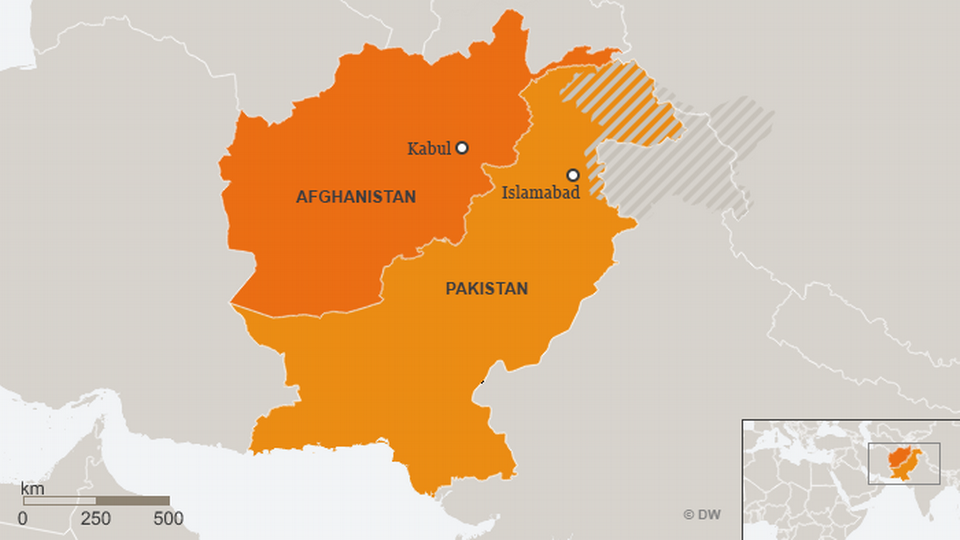Noman Amjad
Security concerns have long plagued Pakistan, with a significant focus on threats from India, which have somewhat eclipsed the mounting security issues along its Western border. The recent cross-border attack from Afghanistan, resulting in injuries to civilians and military personnel, serves as a stark reminder of the persistent and urgent challenges to Pakistan’s security, even after two decades in the War on Terror.
Pakistan’s geographical location presents a unique security challenge, with India to the East and a lengthy border shared with Afghanistan to the West, a region known for harboring various terrorist groups. Despite the change in the political landscape with the formation of the Taliban government in Afghanistan, the country continues to grapple with power struggles, providing fertile ground for non-state actors, including Tehreek Taliban Pakistan, Al-Qaeda, Daish, and the emerging militant group Jabhat Ansar al-Mahdi Khorasan (JAMK). The strategic importance of this location cannot be overstated.
The evolving nature of warfare, with states resorting to proxy means rather than direct confrontation, has necessitated Pakistan’s intelligence agencies to adopt more sophisticated strategies to combat non-state actors effectively. The porous borders, particularly in areas adjoining Afghanistan, have made Pakistan vulnerable to numerous terrorist infiltrations, leading to violent activities within its territory.
While the focus has been largely on Afghanistan, it’s crucial to address the role of India in destabilizing Pakistan’s security through proxy support to separatist forces like the Baloch Liberation Army. Such tactics not only pose a direct security threat but also impede the country’s economic progress by targeting infrastructure projects vital for its development, as evidenced by the attack near the Dasu dam project.
The ongoing security challenges underscore the urgent need for Pakistan to prioritize counterterrorism efforts and enhance border security, while also pursuing mutually beneficial agreements with Afghanistan. Failing to address these issues promptly could significantly prolong the country’s recovery from the persisting security conundrum.
Therefore, engaging with Afghanistan diplomatically is critical for Pakistan due to the shared border and historical ties between the two countries. The geographical proximity of Afghanistan makes it essential for Pakistan to have a stable and cooperative relationship with its neighbor. Diplomatic engagement provides a platform for addressing mutual concerns, fostering economic cooperation, and promoting regional stability.
Firstly, diplomatic engagement with Afghanistan is crucial for managing shared security challenges. Both countries face common threats from terrorist groups operating along the border. By collaborating diplomatically, Pakistan and Afghanistan can coordinate efforts to address cross-border terrorism, enhance intelligence sharing, and create joint security mechanisms to prevent militant activities from destabilizing the region.
Secondly, diplomatic engagement facilitates economic cooperation and trade opportunities. A stable Afghanistan is beneficial for Pakistan’s economic interests as it opens up avenues for trade and transit routes. By engaging diplomatically, both countries can work towards enhancing trade relations, developing infrastructure projects, and exploring joint economic ventures. This can lead to economic growth, job creation, and increased regional integration, benefiting the people of both nations.
Furthermore, diplomatic engagement with Afghanistan is vital for promoting regional stability. Tensions and conflicts between Pakistan and Afghanistan have the potential to spill over and impact the wider region. Through diplomatic channels, the two nations can work on resolving historical disputes, building trust, and promoting peacebuilding initiatives. A stable and cooperative relationship between Pakistan and Afghanistan can have a positive impact on the overall stability of South Asia.
In summary, engaging with Afghanistan diplomatically is crucial for Pakistan due to the interconnected security, economic, and stability concerns. By prioritizing diplomatic engagement, Pakistan can work towards fostering a mutually beneficial relationship with its neighbor, addressing common challenges, and contributing to regional peace and prosperity.
















